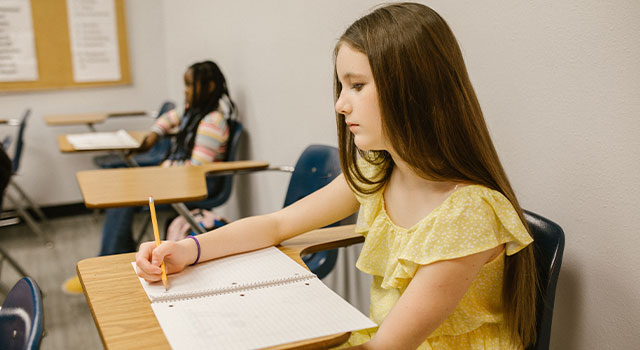 A common myth is that vision therapy is only effective on young kids and teens with vision problems. Not true. Vision therapy can be beneficial for individuals of all ages, even adults. Additionally, vision therapy is not just for those with vision problems, but also for those with learning difficulties, developmental delays, and even sports-related injuries. Let’s delve deeper into vision therapy treatment: teens vs adults.
A common myth is that vision therapy is only effective on young kids and teens with vision problems. Not true. Vision therapy can be beneficial for individuals of all ages, even adults. Additionally, vision therapy is not just for those with vision problems, but also for those with learning difficulties, developmental delays, and even sports-related injuries. Let’s delve deeper into vision therapy treatment: teens vs adults.
What is Vision Therapy?
Vision therapy is a non-surgical treatment option designed to help individuals improve their visual skills and functions. It's a customized program that involves exercises and activities aimed at strengthening the eyes and brain connection. Think of it as your eyes going to the gym.
When it comes to teens versus adults, there are certain differences in the problems treated with vision therapy.
Teens
Teens or young adults typically undergo vision therapy to improve their reading and learning abilities. Vision therapy can help teens with the following:
Amblyopia
More commonly known as lazy eye, this condition occurs when one eye is weaker than the other. Vision therapy can help strengthen the weaker eye and improve visual acuity.
Strabismus
A condition that occurs when the eyes are not aligned properly, causing one eye to turn inwards, outwards, upwards, or downwards. Vision therapy can help align the eyes and improve binocular vision.
Convergence insufficiency
This condition occurs when the eyes cannot focus on a close object cooperatively. Vision therapy can help improve the ability to focus on close objects and reduce eye strain.
Visual processing disorders
When the brain struggles to comprehend visual information, visual processing disorder occurs. Vision therapy can help improve visual memory, visual discrimination, and other cognitive functions related to visual processing.
Teens or young adults can benefit greatly from vision therapy because they are still developing their visual and cognitive abilities. Vision therapy can help improve their academic performance, social skills, and overall eye health.
Adults
While vision therapy is often associated with children, it can also benefit adults. Adults typically undergo vision therapy for the following reasons:
Traumatic Brain Injury (TBI)
Vision therapy can help improve the visual symptoms associated with a traumatic brain injury. TBI can lead to various visual problems such as difficulty focusing, tracking moving objects, or processing visual information. It is frequently used in conjunction with other rehabilitation methods.
Stroke
Vision therapy can help improve visual field loss and visual processing difficulties associated with a stroke. It is important to note that vision therapy is usually integrated with other rehabilitation techniques for optimal recovery.
Amblyopia
Similar to kids and teens, vision therapy can be an effective treatment option for adults suffering from Amblyopia. The therapy may include activities such as patching the stronger eye, using special lenses, and practicing eye movement exercises. With regular practice, vision therapy can help adults with amblyopia improve their visual function.
Strabismus
Even though it's crucial to correct strabismus as soon as possible, adults can still benefit significantly from vision treatment. The eye-brain connections (neuroplasticity) needed for clear vision are trained and developed. Your optometrist may advise starting a vision therapy program after strabismus surgery to retrain the visual system.
Vision therapy can help improve visual skills and functions for both teens and adults. While the approach taken when treating teens vs adults may differ slightly, the overall goal remains the same.
Vision Therapy for Teens and Adults in Center
Vision therapy may be a solution worth looking into if you or your teen suffer from any of the issues listed above. Contact Golden Eye Clinic in Center to learn more about how vision therapy can help.
